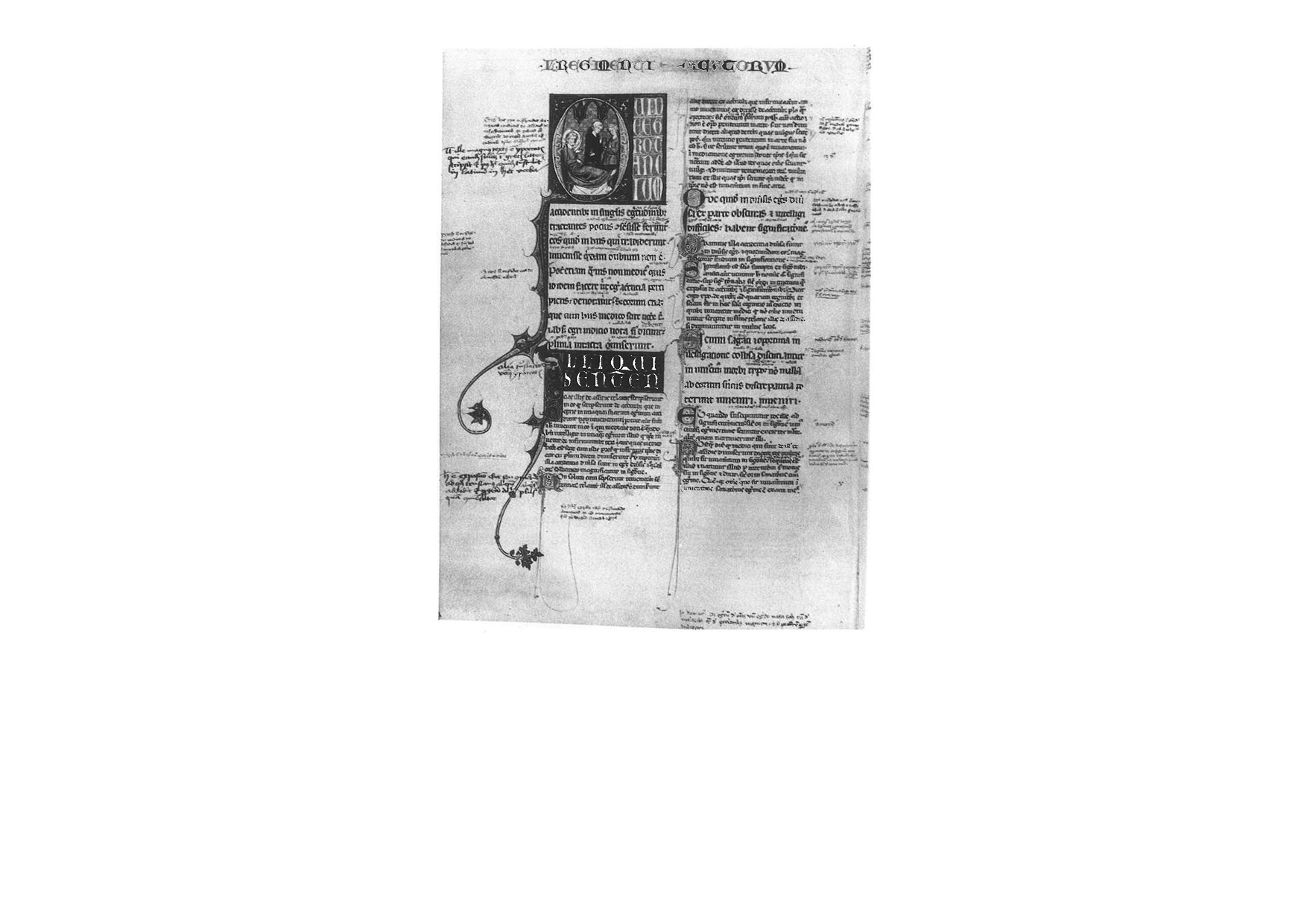glossing

see also annotating, multiplying form, producing texts, writing
A glossary is a list of terms defined in relation to the specificity of the text. Glossaries aid reading comprehension, and also establish the presence of the readers. Glossing (from Late Latin glossa, “obsolete or foreign word”) was a medieval technique of adding commentaries to the main text of illuminated manuscripts. Glossators would add small handwritten notes and illustrations in between the lines and in the margins. Reading between the lines opened the text up for various interpretations, and illustrations served as mnemonic aids to assist readers to recall information.1
The texts written on these cards constitute a glossary which defines the tasks of the Contingent Librarian.
Image: A glossed manuscript of a late-thirteenth-century Latin translation of a medical work by Hippocrates
-
Hobart, M. E. and Schiffman, Z. S. (1998) Information Ages: Literacy, Numeracy, and the Computer Revolution. Baltimore: Johns Hopkins University Press. ↩
